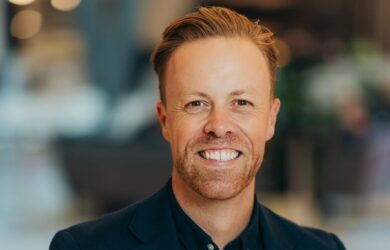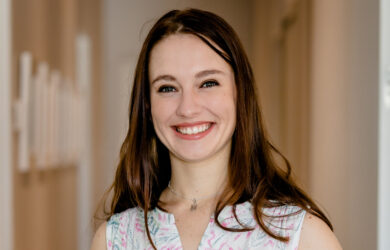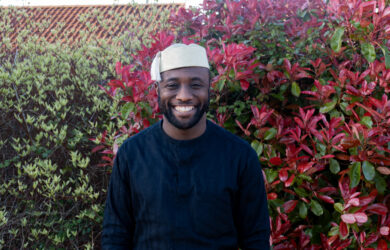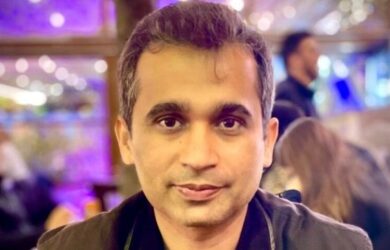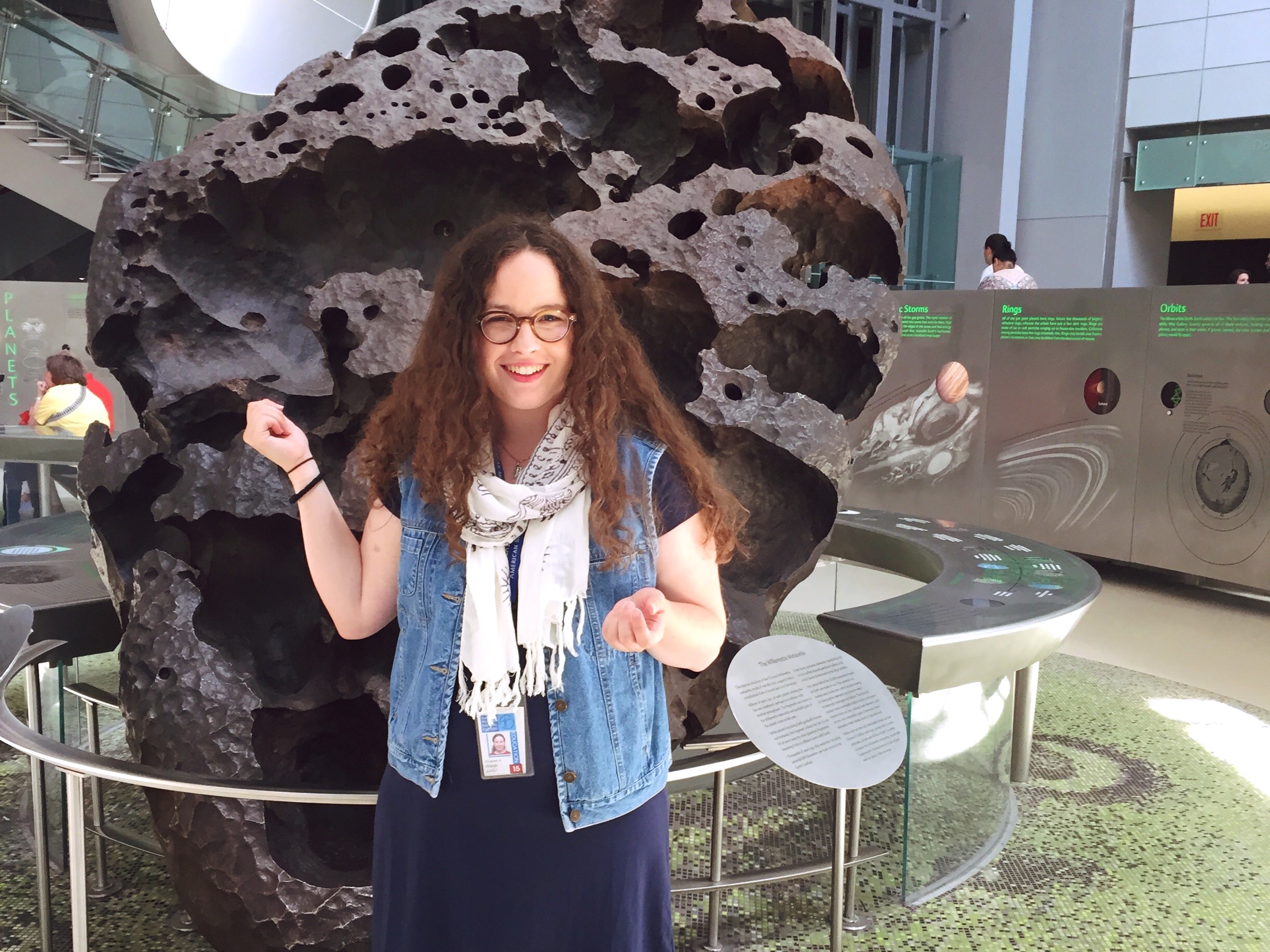
Elizabeth Ann Walsh will explore the relationship between source communities and museums.
My interest is in how the role of curators is shifting beyond just knowledge. We have to be aware of how information is presented and received.
Elizabeth Ann Walsh
Elizabeth Ann Walsh grew up with an interest in different ways of being in the world and this has fed her interest in exploring how museums can open up spaces for source communities to share their stories and cultures.
She has spent much of her time since her teenage years at New York’s American Museum of Natural History and it was the source of her senior thesis at Columbia. It explored the relationship between the museum and a group of Native Americans over the repatriation of a large iron meteorite which represents a spiritual being for them. A legal case regarding the repatriation was settled in 2000 with a settlement allowing the meteorite to stay in the museum but also enabling members of the group to visit it and hold a private ceremony around it. An internship programme was also set up for young Native Americans interested in developing a career in museums.
For her MPhil in Social Anthropology, which she begins in the autumn, Elizabeth will explore the potential of digital technologies to democratise the relationship between museums and source communities through efforts taking place along these lines at Cambridge’s Museum of Archaeology and Anthropology. “My interest is in how the role of curators is shifting beyond just knowledge. We have to be aware of how information is presented and received,” she says.
Museums
Elizabeth has long had a fascination for how ideas can be communicated in different ways. Her twin brother is autistic and this gave her a different outlook on life. “It was really normal for me to be around someone who communicated differently,” she says. “Tim’s way of thinking and communicating was incomprehensible to others. People always asked me what he was trying to say as I understood what he meant. Part of the reason I became interested in anthropology was that I wanted to explore different ways of being in the world. Tim was not necessarily having trouble communicating. It was people who were having trouble understanding him. It’s easy to be dismissive. Anthropology gave me a way not to be dismissive.”
When she was six or seven Elizabeth, who was born in New Jersey and grew up in the town of West Milford, visited the American Museum of Natural History [AMNH] for the first time. She remembers “feeling completely transported”. “It was like a different world,” she says.
As a teenager she was homeschooled at her family’s small farm and she visited museums as part of her studies. As a result of her interest in museums, she was chosen to take part in an art project devised by Tino Sehgal which involved conversing with museum goers as they moved through the Guggenheim Museum. “It made me think about how people interact with museum spaces and how that could be challenged,” she says.
Halfway through high school Elizabeth started taking college classes at Passaic County Community College, which once again gave her a different perspective on the whole experience of learning. She was 16 and some of her fellow students had children her age. The college gave her the freedom to manage her own time and a non-traditional education.
It also gave her the flexibility to take part in equestrian competitions with her horses around her studies. At the time, she was studying English and in 2010 she started writing a column on horses for Barrel Horse News.
Anthropology
The year she graduated from the college Elizabeth started volunteering at the AMNH and applied to Columbia, which she commuted to daily so she could be at home to do chores on the farm and be with her brother.
Initially, she was interested in English, but as she did more volunteering at the museum, working with school groups in the education department, she discovered a love of anthropology and started taking anthropology classes.
In 2013 Elizabeth took a role as a teaching assistant in the museum's education department and assisted with educational camps and workshops at weekends or after school. She continued this after she graduated in 2014 and also interned at the Paley Center for Media which looks at the impact of the media on society and has a lot of digitised material on old tv programmes.
She decided she wanted to pursue her studies in social anthropology and applied to Cambridge as she was interested in work being done there on collaborative programming with social communities and because the masters programme allowed her to deepen her knowledge of anthropology while doing more practical work. “I am interested in the role of curators. I think that spaces need to be made for source communities to have an opportunity to share their stories and cultures. There’s a lot of interesting work being done on collaboration. It’s social anthropology writ large,” she says.
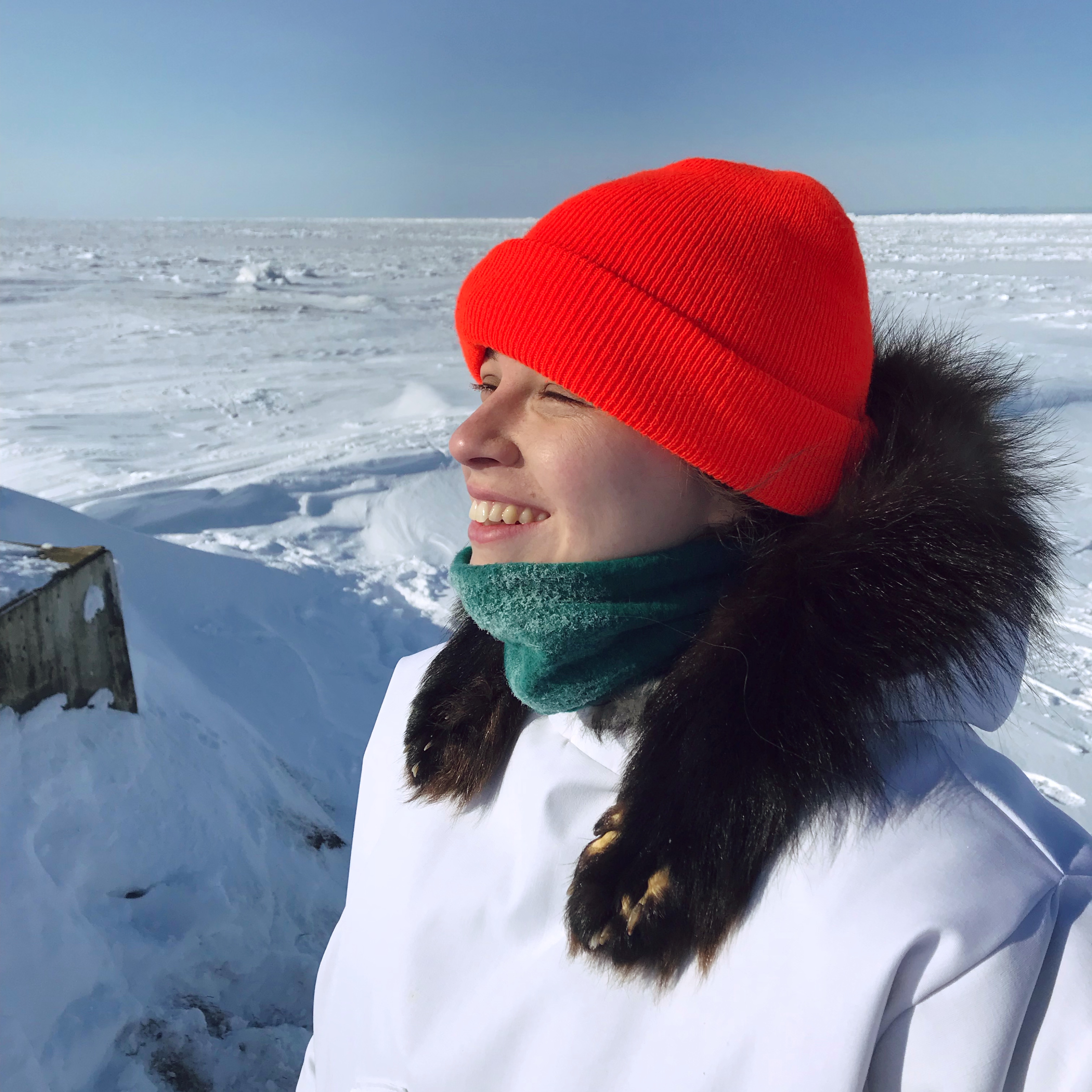
Elizabeth Ann Walsh
- Alumni
- United States
- 2015 MPhil Social Anthropology
- King's College
Liz is currently a third-year PhD student in the Department of Social Anthropology at the University of Cambridge. She began her postgraduate career researching relationships between ethnographic museums and Indigenous source communities, focusing specifically on critiques of digital and non-material repatriation and disparities in interpretational authority. Her recent fieldwork in the Alaskan Arctic has led her to broaden her focus to other cultural institutions while interrogating the integration of non-Native settlers into geographically-isolated Native communities. With a specific interest in how Indigenous sovereignty is recognised and exercised within the politically-charged Arctic, her work considers the competing interests of multi-national corporations, settler nation-states, and local Indigenous peoples in determining the future of economic and social development in the North.
Previous Education
Columbia University
Passaic County Community College








